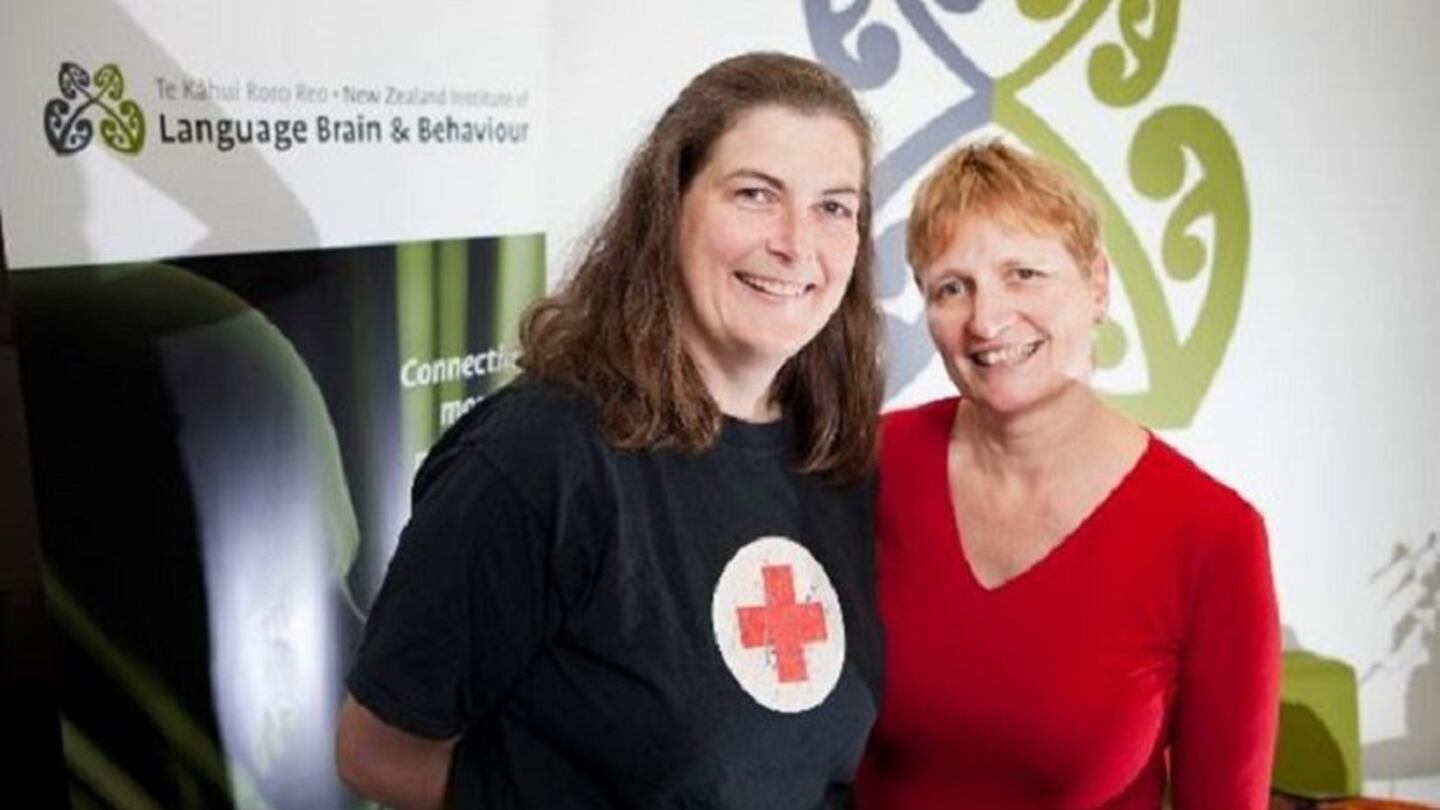Canterbury University's Professor Jen Hay and Professor Jeanette King. Photo / Supplied
A new study on the early stages of language-learning has found that non-Māori speakers are picking up a surprising number of te reo Māori words from everyday exposure to the language and this could help fast-track their learning of te reo.
"We eventually figured out that that non-Māori speaking adults in Aotearoa have implicit memories of over 1500 te reo Māori words, despite only knowing the meaning of about 70 to 80 on average. It is knowledge of these words that enables them to build up a rich understanding of the language’s sound patterns.” the study's principal investigator, Professor Jen Hay of the University of Canterbury (UC), said in a statement.
The UC-led team is exploring the very earliest stages of language-learning by studying knowledge of te reo Māori held by New Zealanders who have never deliberately tried to learn the language.
Professor Hay said people in Aotearoa are exposed to te reo Māori on a regular basis, including in songs, place names and speeches.
“This makes it an interesting case study of what can be learned, without effort or awareness, from a small amount of regular exposure to a language.”
The set of words that people have an implicit memory of without knowing their meaning is known as the ‘proto-lexicon’ and building this is an important step in language acquisition, especially for infants.
“But, this study is the first real-world demonstration that adults can also have a large proto-lexicon of a language they are regularly exposed to.”
The study's co-author UC Professor Jeanette King said for those who are motivated to learn te reo Māori, the proto-lexicon could fast-track their learning by helping them attach meanings to the words they already know,
“This should give them significant advantages over learners who have not accumulated this previous experience.”
Professor King is leading a follow-up study that will explore the consequences for language learning and teaching.
"But what we don’t yet know is how much exposure you need to the language to build this proto-lexicon, and whether you need to have actually grown up in New Zealand to have this knowledge.”
She will be working with children, and with people who have spent different phases of their life in New Zealand, to try and understand more about how the proto-lexicon develops.

